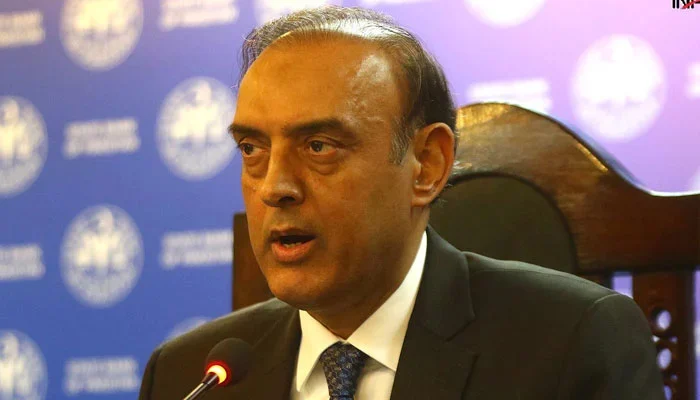Karachi: State Bank of Pakistan (SBP) Governor Jameel Ahmad admitted that the country’s exports have been lower than expected and urged the business community to ramp up production and international trade activities.
He mentioned that the country’s external liabilities have remained stable for an extended period, attributing this stability to the current government’s prudent economic and fiscal management.
“The foreign debt has not increased in the past two and a half years, while an $8 billion loan has been fully repaid in the short term,” said the SBP governor while addressing industry leaders at the Federation of Pakistan Chambers of Commerce and Industry (FPCCI) in Karachi.
He pointed out that the country’s actual foreign debt stands at over $100.08 billion and its volume has improved significantly, with an increase of $500 million due to debt revaluation.
The central bank chief noted that debt servicing and the balance of payments improved as the country borrowed mainly through multilateral institutions this year, with short-term debt being paid off with long-term debt.
He emphasized that controlling external accounts will pave the way for economic growth. “Issues such as high interest rates have been addressed, and there are no longer any restrictions on imports,” Ahmad added.
Last month, the central bank reduced the key policy rate by 200 basis points (bps) to 13%, marking its fifth consecutive cut following a continuous decrease in inflation, which fell to 4.1% in December 2024.
The governor also highlighted that the current account situation has stabilized, with remittances expected to reach nearly $3 billion in December. “Remittances for the current fiscal year are likely to total at least $35 billion,” he forecasted.
He further noted that food inflation peaked at 47% in May 2023, and inflation could rise between April to June 2025.
On external investment, the governor revealed that $2.2 billion was allowed to be taken out of the country in 2024.
Additionally, he announced a new funding facility for small and medium-sized enterprises (SMEs), allowing businesses to borrow up to Rs10 million without collateral.
He mentioned that the government would cover 20% of any losses on these loans, and export-based businesses would be prioritized for these credits.
During the event, the FPCCI president briefed the central bank governor on ongoing trade issues with Iran and Afghanistan, urging an immediate cut in interest rates to 9% to support the economy.
Pakistan is on a challenging economic recovery path and has been supported by a $7 billion facility from the International Monetary Fund (IMF) in September 2024.
Although the country’s economy stabilized after nearly defaulting last summer, it remains reliant on IMF bailouts and loans from friendly countries to service its substantial debt, which consumes half of its annual revenues.
Islamabad spent several months negotiating with IMF officials to unlock the latest loan, which came with the condition of reforms, including raising household bills to address a chronically ailing energy sector and increasing meager tax revenues.



